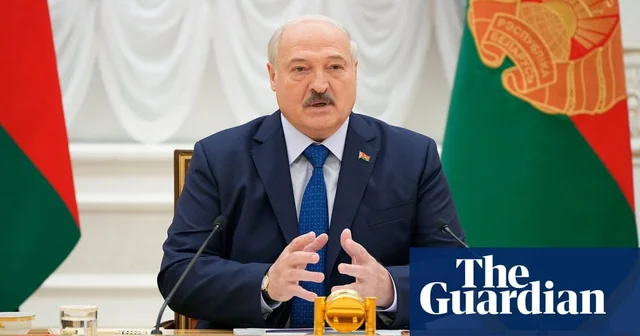Introduction
In a move that has sparked controversy and concern, the Belarusian president, Alexander Lukashenko, has recently signed a new law granting himself lifelong immunity from criminal prosecution. This law not only shields Lukashenko from any potential legal consequences for his actions but also aims to prevent opposition leaders living in exile from participating in future presidential elections. The implications of this law are far-reaching, as it solidifies Lukashenko’s grip on power and further restricts democratic processes in the country.
Tightening Requirements for Presidential Candidates
Under the new law, significant changes have been made to the requirements for presidential candidates in Belarus. The intention behind these changes is clear: to eliminate potential challengers and maintain Lukashenko’s stronghold on the presidency. One of the key changes is that only citizens of Belarus who have permanently resided in the country for at least 20 years and have never held a residence permit in another country are eligible to run for president. This effectively excludes opposition leaders who have sought refuge in neighboring countries in recent years, further stifling their ability to participate in the political process.
Controversial Re-election and Mass Protests

The backdrop to this new law is the controversial re-election of Alexander Lukashenko in August 2020. The opposition and the international community widely condemned the election as fraudulent. Mass protests erupted across Belarus as citizens expressed their dissatisfaction with the results and demanded fair and transparent elections. In response, the Belarusian authorities cracked down on the protests, detaining over 35,000 people, many of whom were subjected to torture while in custody or forced to flee the country.
Lifelong Immunity for Lukashenko
The most striking provision of the new law is the granting of lifelong immunity to Alexander Lukashenko. Should he ever leave power, he cannot be held accountable for any actions committed in connection with his exercise of presidential powers. This immunity effectively shields him from any potential legal consequences, further consolidating his position of power. Additionally, the law ensures that the president and his family will receive lifelong state protection, medical care, and life and health insurance. Furthermore, after resigning, the president will become a permanent lifelong member of the upper house of parliament.
Opposition Leader’s Response
Opposition leader Sviatlana Tsikhanouskaya, who fled to Lithuania in 2020, sees the new law as a clear response to Lukashenko’s fear of what awaits him when he eventually leaves power. Tsikhanouskaya asserts that Lukashenko, who has been accused of ruining the lives of thousands of Belarusians, will eventually be held accountable under international law, and no amount of immunity will be able to protect him.
Seeking Justice and Accountability
The Belarusian opposition is determined to seek justice and accountability for the actions of Alexander Lukashenko’s regime. Among their demands are investigations into the disappearances of opposition politicians and the removal of Ukrainian children from Ukraine to Belarus. The opposition leader, Tsikhanouskaya, emphasizes that the dictator will be brought to justice, highlighting the existence of approximately 1,500 political prisoners still behind bars in Belarus, including Nobel peace prize laureate Ales Bialiatski.
International Response and Condemnation
The international community has widely condemned the new law granting lifelong immunity to the Belarusian president. Many see it as a blatant attempt to further consolidate power and suppress any opposition or dissent. The European Union and the United States have imposed sanctions on Belarus in response to the government’s actions, including the crackdown on protests and the violation of human rights. The international community continues to monitor the situation closely and calls for a return to democratic processes in Belarus.
Future Implications for Belarus
The signing of the law granting lifelong immunity to Alexander Lukashenko raises serious concerns about the future of democracy in Belarus. With the tightening of requirements for presidential candidates and the exclusion of opposition leaders in exile, the prospects for fair and transparent elections are increasingly dim. The consolidation of power in the hands of one individual undermines the principles of democracy and raises questions about the legitimacy of the political system in Belarus.
Conclusion
The new law granting lifelong immunity to Alexander Lukashenko has far-reaching implications for Belarus. It not only shields the president from any potential legal consequences but also restricts the participation of opposition leaders in future presidential elections. The tightening of requirements for candidates further solidifies Lukashenko’s power and undermines the democratic processes in the country. The Belarusian opposition, along with the international community, continues to advocate for justice, accountability, and a return to democratic governance in Belarus. It remains to be seen how these developments will shape the country’s future.

